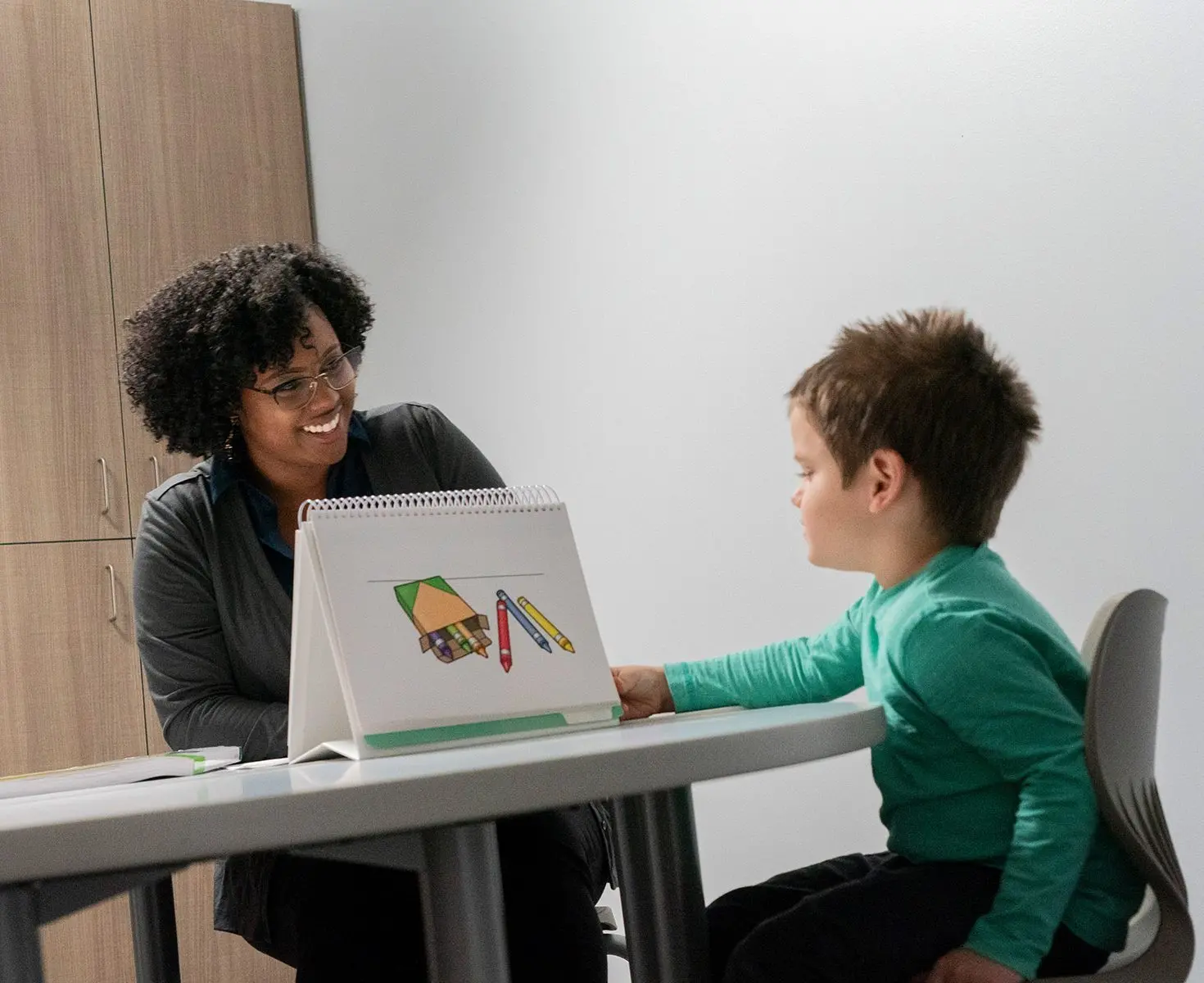Why Early Intervention with a Speech Pathologist is Crucial for Children
Why Early Intervention with a Speech Pathologist is Crucial for Children
Blog Article
Just How a Speech Pathologist Can Aid Improve Interaction Abilities
Efficient communication is a keystone of personal and specialist success, yet several individuals encounter difficulties that hinder their capability to express themselves plainly. A speech pathologist is geared up to resolve these barriers via targeted evaluation and treatment techniques customized to each individual's demands.
Comprehending Interaction Disorders
Recognizing communication conditions is important for recognizing exactly how they affect people' ability to share themselves and involve with others. Interaction disorders incorporate a vast array of troubles that affect speech, language, and social communication, typically hindering efficient interaction. These disorders can develop from numerous aspects, consisting of neurological conditions, developing hold-ups, physical impairments, or mental problems.
Speech problems may materialize as problems in voice, articulation, or fluency manufacturing, affecting how words are noticable or talked. Language problems, on the various other hand, entail challenges in understanding or using language, which can hinder both non-verbal and spoken interaction. Social interaction problems are characterized by difficulties in the pragmatic aspects of communication, such as taking turns in conversation or understanding social hints.
The repercussions of interaction conditions are extensive, affecting not just the person's capability to communicate ideas and feelings however likewise their social connections, academic chances, and general high quality of life. Understanding of these conditions can promote empathy and support, encouraging effective strategies for interaction and involvement. Recognizing the intricacies of communication conditions is an important step towards promoting inclusivity and addressing the demands of those influenced.
Duty of a Speech Pathologist
Speech pathologists often play an important role in diagnosing and dealing with communication problems, using a variety of evidence-based techniques customized per person's requirements. These professionals deal with people across the lifespan, from youngsters with speech hold-ups to adults recouping from strokes or distressing brain injuries. Their competence includes a variety of interaction problems, including expression, language, fluency, and voice conditions.
In therapeutic setups, speech pathologists use structured treatments developed to boost interaction skills. They might implement approaches such as speech exercises, language video games, and social communication training to promote enhancements in receptive and meaningful language capacities. Speech Pathologist. Furthermore, they educate customers and their family members regarding effective interaction strategies and adaptive techniques to browse daily communications
Beyond direct therapy, speech pathologists team up with other health care specialists, caretakers, and instructors to make sure a thorough method to treatment. They promote for customers by giving resources and support, allowing people to attain their interaction objectives and improve their overall high quality of life. As professionals in the area, speech pathologists are essential in fostering effective communication, promoting self-reliance, and improving social involvement for those with interaction difficulties.
Evaluation and Medical Diagnosis Refine
The evaluation and medical diagnosis procedure carried out by speech pathologists normally entails a thorough analysis to recognize interaction problems properly. This procedure begins with an in-depth situation history, where the clinician gathers relevant information about the person's clinical, academic, and developmental background. Recognizing the context of the person's interaction problems is important for an accurate medical diagnosis.
Adhering to the situation history, speech pathologists utilize casual evaluations and standardized examinations to review different aspects of interaction, consisting of speech noise production, language understanding, expressive language, and social interaction abilities. These assessments are tailored to the person's age and particular concerns, giving useful data for evaluation.
Observation is also an essential element of the assessment procedure, as it allows the medical professional to see firsthand just how the individual connects in natural setups. Additionally, meetings with relative and instructors can provide insight into the person's communication difficulties throughout different settings.
Once the analysis is complete, the speech pathologist synthesizes the searchings for to figure out a from this source medical diagnosis and suggest ideal treatments. This thorough assessment process makes certain that individuals get targeted assistance tailored to their one-of-a-kind communication requirements, laying the structure for effective therapeutic methods.
Therapeutic Techniques and Methods
Numerous therapeutic methods and approaches are employed by speech pathologists to deal with a variety of interaction disorders efficiently. One extensively made use of method is articulation therapy, which concentrates on dealing with speech sounds through repetition and visual hints. This method is specifically beneficial for individuals with speech sound conditions.
One more reliable approach is language treatment, which boosts both responsive and meaningful language abilities. This might entail interactive tasks that advertise vocabulary growth, sentence framework understanding, and conversational abilities. In addition, speech pathologists often use social skills training to boost practical language capacities, making it possible for people to browse social communications a lot more effectively.
Fluency shaping and stuttering adjustment methods are specifically developed to assist those experiencing fluency disorders. These click for info approaches aid customers establish smoother speech patterns and handle the emotional and physical parts of stuttering.
Moreover, different and augmentative interaction (AAC) systems are utilized for individuals with extreme interaction disabilities. These systems, which can include motions, signs, or electronic tools, supply necessary support for effective interaction.
Benefits of Speech Therapy

Furthermore, speech therapy can assist in creating crucial listening and comprehension skills, cultivating far better interaction in conversations. People with cognitive-communication conditions can also profit, as treatment focuses on strengthening memory and analytic capabilities, important for reliable interaction.
One more essential aspect is the emotional assistance given throughout treatment sessions. Speech pathologists create a safe setting, motivating patients to get over stress and anxiety and disappointment pertaining to their interaction issues. This assistance can result in boosted self-esteem and total mental health.
Furthermore, very early intervention via speech therapy can protect against further difficulties, making sure that people reach their full communicative capacity. Overall, the click to read benefits of speech treatment extend past plain speech improvement, favorably impacting different measurements of life for those affected by communication troubles.
Conclusion
In summary, speech pathologists play a critical role in attending to interaction disorders with analysis, medical diagnosis, and tailored restorative treatments. By using evidence-based techniques, these experts boost people' speech and language capabilities, promoting enhanced quality, fluency, and social communication skills. The benefits of early treatment emphasize the relevance of seeking support from speech pathologists, as their experience can significantly improve communicative capacity, eventually bring about better success in both individual and professional spheres.

Speech pathologists regularly play a vital function in detecting and treating interaction problems, employing a range of evidence-based methods customized to each person's needs. As experts in the field, speech pathologists are necessary in cultivating effective communication, promoting self-reliance, and improving social engagement for those with interaction obstacles.

Report this page